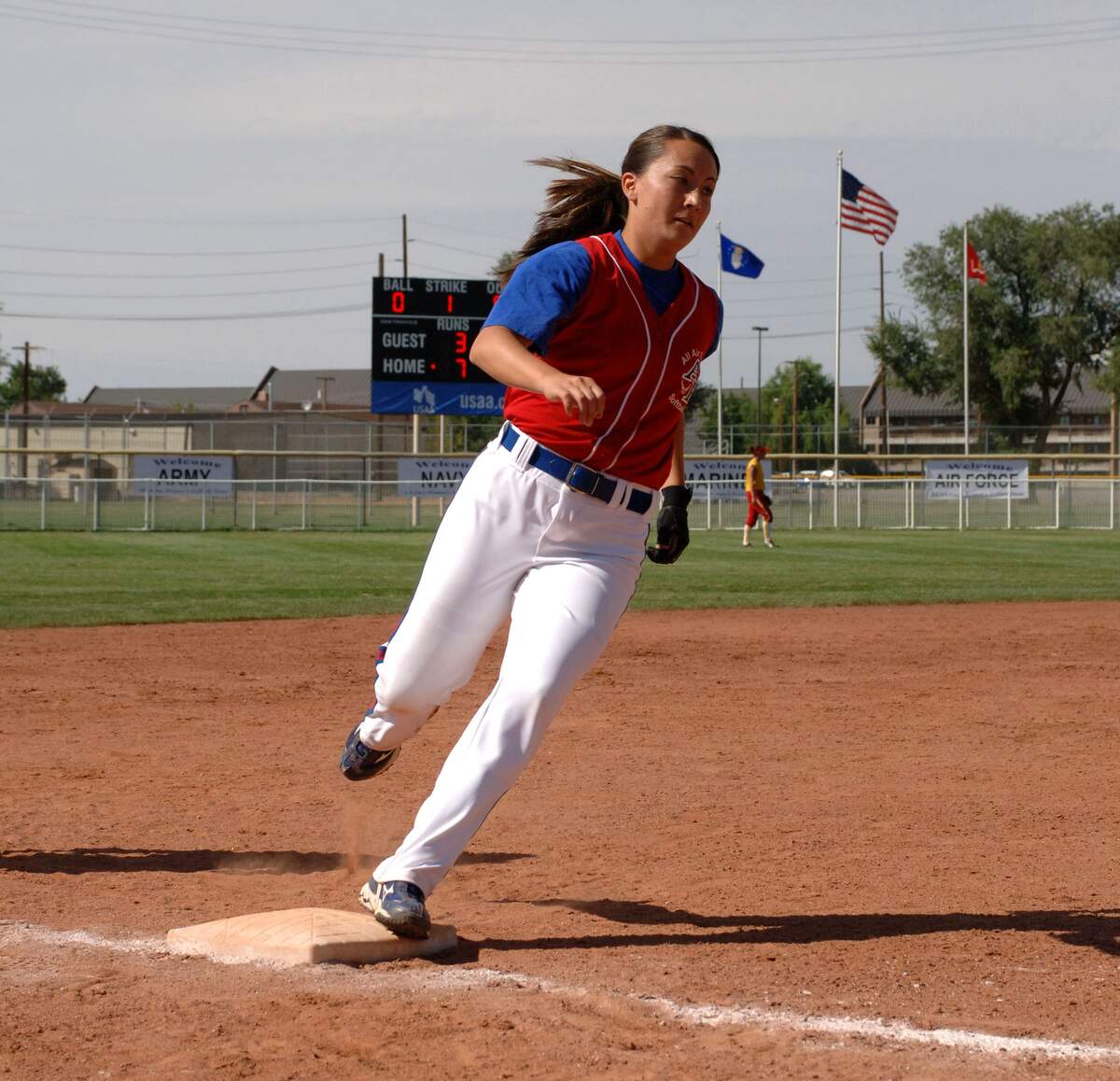

National Girls and Women in Sports Day
Also known as
National Women in Sports Day (1987 and 1988)
National Women and Girls in Sports Day (since 1989)
Observed
the first Wednesday in February (since 1987)
Dates
Founded by
United States Congress on October 27th, 1986
President Ronald Reagan on February 4th, 1987
Hashtags
#NGWSD
#NationalGirlsAndWomenInSportsDay
#GirlsAndWomenInSportsDay
#NationalWomenInSportsDay
#WomenInSportsDay
#NationalWomenAndGirlsInSportsDay
#WomenAndGirlsInSportsDay
Sources
https://en.wikipedia.org/wiki/Women%27s_sports
https://www.govinfo.gov/content/pkg/STATUTE-100/pdf/STATUTE-100-Pg3033.pdf
https://www.presidency.ucsb.edu/documents/proclamation-5606-national-women-sports-day-1987
https://www.womenshistory.org/articles/womens-sports-history
https://www.womenssportsfoundation.org/en/home/advocate/ngwsd
National Girls and Women in Sports Day began as National Women in Sports Day in 1987, then became National Women and Girls in Sports Day in 1989, and is now commonly called National Girls and Women in Sports Day. It was created by a joint resolution of Congress in 1986 and proclaimed by President Ronald Reagan the following year. In its first year, the day recognized the contributions of women's sports to the country and the need for women's sports to be further advanced. It also "united premier organizations and elite female athletes to bring national attention to the promise of girls and women in sports," and paid remembrance to Flo Hyman—an Olympic volleyball player who had died from Marfan's Syndrome the previous year—for her achievements on the court and her dedication in promoting equality in women's sports.
Since then, the day has "evolved into an event to acknowledge the accomplishments of female athletes, the positive influence of sports participation and the continuing struggle for equality for women in sports." It not only honors the achievements of female athletes but of female coaches and leaders. It also "inspires girls and women to play and be active," so they build confidence, strength, and character, in order to unlock their full potential and power and become strong leaders.
The participation of men in sports, like baseball and basketball, was dominant in America at the end of the nineteenth century, at a time when themes of masculinity like warfare and capitalism were prominent in the nation. At the time, women were largely sidelined from sports in the name of safety and because their participation was viewed as being unfeminine—as being immodest, attention-seeking, and selfish. However, the view that women should be passive and not exert their bodies was inconsistent with their daily realities, as many worked long hours doing hard labor in dangerous factories, or had to do other hard work, such as farmwork, in addition to fulfilling roles as mothers. Beyond this, women were regularly exploited and their safety wasn't taken into account in other areas. For example, the age of consent was low in many states, and it was permissible for husbands to beat their wives in many locations.
In the twentieth century, women entered into organized sports, albeit on a small scale. Upper-class white women participated in "country club sports" such as golf, tennis, and swimming. In the 1920s, some female sports figures, such as tennis player Helen Wills and swimmer Gertrude Ederle, came to prominence and became celebrities. Black women were not included in this rise of celebrity, however, and were kept off courts and out of pools. But they competed in their communities, in sports like track and basketball, often taking on and defeating white teams.
In 1943, during World War II, the All-American Girls Professional League, a women's baseball league, got its start. Norms of femininity and dress were enforced in the league, but despite this, the league is still viewed as being groundbreaking. It came out of other changes during the war effort, where women stepped into masculine roles, joining the Women's Army Corps and Women's Naval Reserve, and working in factories and gaining the name Rosie the Riveters. But the league folded in 1954, at the same time women returned to more traditional roles on the homefront.
High school girls during the postwar years were largely relegated to sports like bowling and swimming. But, coming on the heels of the civil rights and feminist movements of the 1960s and early '70s, Title IX became law in 1972. It prohibits gender discrimination in schools that receive federal funds, and says, in part, "no person shall on the basis of sex, be excluded from participating in, be denied benefits of, or be subjected to discrimination under any educational programs or activities receiving federal financial assistance…" Under Title IX, males and females are guaranteed equal access to facilities and benefits—such as equipment, supplies, awards, and quality of coaches. Title IX helped women's sports gain respect, and to be taken more seriously, like men's sports, and ultimately, helped increase women's participation in high school and college sports.
In 1973, Billie Jean King beat Bobby Riggs in the "Battle of the Sexes". Tennis came to the forefront of women's professional sports in the 1970s, and King's triumph in the battle further elevated female sports. Decades later, Venus and Serena Williams were at the center of the tennis world and became role models for other female tennis players, as well as for women athletes in general. During the last quarter of the twentieth century, participation in and popularity of women's sports increased greatly. Tennis was the first women's professional team sport to gain prominence and was followed by basketball and soccer in the 1990s, with the formation of the WNBA and the holding of the Women's World Cup and Olympic soccer matches.
But, in the twenty-first century, the rate of participation of women in sports is still not equal to men, and, in general, women athletes are paid less, the media covers women's sports less, fewer fans attend matches or games, games are played in smaller facilities of less quality, and women are not in leadership positions, such as administration and coaching, at the same level as men. Still, participation has expanded, which has also had a positive effect on the education and employment of many women later in life. On National Girls and Women in Sports Day, we acknowledge the accomplishments of female athletes, the positive influence of their participation in sports, and their continuing struggle for equality in them.
How to Observe National Girls and Women in Sports Day
There are many ways you could spend the day. Some include:
- Acknowledge the accomplishments of female athletes, the positive influence of their participation in sports, and their continuing struggle for equality in sports. Some ways these could be done are by learning and sharing about some of the most iconic and accomplished female athletes, learning about and discussing some benefits of the participation of women in sports, and reading about and discussing times in the past when women struggled for equality in sports.
- Encourage a girl or young woman in your life to pursue whatever sport they have an interest in, and encourage girls in general to take an interest in sports.
- Use the hashtag #NGWSD and share your own story as a girl or woman in sports.
- Learn about some prominent women coaches and thank any women coaches you know for the work they do.
- Visit the Women's Sports Museum or the National Women's History Museum.
- View the list of women in the International Women's Sports Hall of Fame.
- Learn more about Flo Hyman, the athlete that today's holiday originally paid remembrance to.
- Check for events related to the day taking place near you. If you are hosting an event, you can list it online. Visit the webpage associated with the day for more information and to download resources for the day.
- Read a book about women in sports such as Getting in the Game: Title IX and the Women's Sports Revolution or Women and Sports in the United States: A Documentary Reader.
- Watch a film that focuses on women in sports such as Battle of the Sexes, which is about the King vs. Riggs battle, or A League of Their Own, which presents a largely fictionalized story about the All-American Girls Professional League.





















